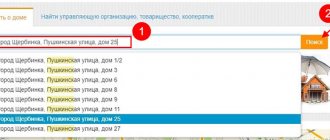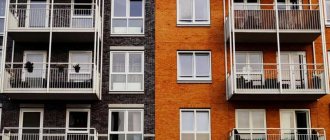Norm.
From 03/01/2019, the Rules for the implementation of activities for the management of apartment buildings[1] were supplemented by Section. VII (clauses 27 – 30), which establishes the specifics of organizing the interaction of the management company with the owners and users of premises in the house within the framework of management of apartment buildings.
Based on clause 27 of these rules, the management company is obliged to ensure interaction with the owners and users of premises in the apartment building, including by providing these persons with the opportunity to personally contact the representative office of the management company:
- or to the current office of the management organization;
- or in the MFC for the provision of state and municipal services in the event that the management company concludes an agreement with this center providing for the possibility of ensuring such interaction.
The representative office of the management company must be located within the municipality, including within the intracity district in a city district with an intracity division or the intracity territory of a federal city, on the territory of which the apartment buildings managed by such a company are located, within walking distance from these houses. Walking accessibility means a distance of no more than 3 km covered on foot (an addition in accordance with the Decree of the Government of the Russian Federation of September 13, 2018 No. 1090, which was challenged in court).
State Housing and Construction Supervision Service of the Irkutsk Region
29.02.2016
New vision of old laws
According to the new amendments to the Housing Code of the Russian Federation, now the State Housing Property Authority has the right, when it receives complaints from the population, authorities or the media, to conduct an unscheduled documentary or on-site inspection of management companies without the consent of these organizations and without warning their managers or officials. Now this norm is spelled out in Parts 1 and 3 of Article 196 of the RF Housing Code.
Another innovation concerns the access of GZHI inspectors to the object of inspection (MCD), including non-residential premises of the house (basements, technical floors). Often, GZHI inspectors have to demand access to basements and other non-residential premises in an apartment building. Now, failure to provide such access or obstruction on the part of the management company will result in administrative liability as a violation of licensing requirements under Article 7.23.3. or 14.1.3 Code of Administrative Offenses of the Russian Federation.
The punishment for the repeated imposition of administrative penalties by the court of the management company has also been tightened. If previously, only one house could be removed from the register of licenses of a constituent entity of the Russian Federation from the register of licenses of a constituent entity of the Russian Federation for 2 or more instructions from the management company from the State Housing Property Authority within one year, now the legislator has expanded the powers of the inspection bodies.
Thus, Part 5.1 of Article 198 of the Housing Code of the Russian Federation states that if during one calendar year a management company was given 2 or more administrative penalties by a court decision for failure to comply or improper fulfillment of the State Housing Inspectorate’s instructions to eliminate violations of licensing requirements, then they can be removed from the register of licenses of a constituent entity of the Russian Federation, all houses are immediately managed by the management company, which entails the termination of the license of the management company and its activities in managing apartment buildings.
A similar punishment is provided for the head of a management company without a qualification certificate . Therefore, keep in mind that if your management company has changed its manager and does not have a qualification certificate or it has been cancelled, then for this they can also immediately exclude all houses from the register of licenses of a constituent entity of the Russian Federation, which will lead to the termination of all licensing activities of the company for the management of apartment buildings.
Please note that the Information Disclosure Standard under 731 of the Decree of the Government of the Russian Federation as amended on September 27, 2014 continues to be in effect and is a licensing requirement that must be observed. This means you still need to fill out the Housing and Communal Services Reform portal with information and keep the information on it up to date.
Housing and Communal Services Reform website continues to function. So far there are no prerequisites or indications for stopping its work. Therefore, according to the Information Disclosure Standard, information must be disclosed in all sources specified in the legislation: on the Housing and Communal Services Reform, on the website of the Management Company and on information stands.
In the wording of Part 1 of Article 193 of the Housing Code of the Russian Federation, a new clause 7 has appeared, which literally reads as “other requirements established by the Government of the Russian Federation.” However, so far there has been no more or less clear answer to this question. According to some officials in the housing and communal services sector, the legislator is bringing us closer to some gross violations of licensing requirements , which to date have not yet been fully formulated.
According to other experts in the housing and communal services sector, “other licensing requirements” hide all the Decrees of the Government of the Russian Federation that relate to the licensing activities of companies managing apartment buildings. Meanwhile, all licensing requirements are specified in Decree of the Government of the Russian Federation No. 1110 dated October 28, 2014. No changes are planned to be made there yet.
Summarizing all of the above, we can clearly note that it is necessary to comply with all licensing requirements that are enshrined in legislative acts, regulations and articles of the Housing Code. Otherwise, any offense may result in an administrative fine, disqualification or revocation of a license under Art. 7.23.3. or 14.1.3. Code of Administrative Offenses of the Russian Federation.
The plaintiffs' arguments.
Two citizens filed a statement of claim with the RF Armed Forces, who considered that the specified requirements for walking accessibility:
- contradict parts 2, 3 of Art. 1, Art. 5, 154, 156, 161, 193 Housing Code of the Russian Federation, Strategies for the development of the information society in the Russian Federation for 2021 - 2030[2], paragraph 2 of the Standard[3], which define as one of the priority areas for the development of the country’s housing and communal services its digitalization, ensuring access of an unlimited number of persons to management company information (regardless of the purpose for obtaining it) in accordance with a procedure that guarantees the location and receipt of information;
- contain legal uncertainty;
- violate the fair balance of interests of the parties to the MKD management agreement;
- limit the powers of administrative plaintiffs to freely exercise rights arising from relations regulated by housing legislation, in particular limit the right to choose a method of management and a management organization.
The contested provisions on walking accessibility infringe on the rights of owners in choosing a management company, limiting it on a territorial basis, allowing management organizations to legally refuse to conclude a management agreement to owners whose apartment buildings are located at a distance of more than 3 km from the office of the management company, which contradicts the principle of social protection and social justice.
The administrative defendant has not determined how the specified distance (3 km) will be calculated, which will lead to the impossibility of actually applying this norm, will complicate the work of management companies, since it will require them to make significant financial investments in organizing representative offices within a three-kilometer pedestrian accessibility zone and will require an increase in fees maintenance and repair of residential premises.
In addition, when adopting the contested normative act, the Government of the Russian Federation went beyond its powers granted to it by the Housing Code.
Explanations of the RF Armed Forces.
Norms of the Housing Code of the Russian Federation
The Supreme Court did not satisfy the stated requirements, based on the following norms of the Housing Code.
The legal basis for the contested regulation is Part 1 of Art. 161 of the Housing Code of the Russian Federation, according to which management of apartment buildings must ensure:
- favorable and safe living conditions for citizens;
- proper maintenance of common property in the apartment building;
- resolving issues of use of the specified property;
- provision of utility services to citizens living in such a house, or if the owners enter into direct agreements with the RSO, the constant readiness of engineering systems to provide utility services.
The management organization is obliged to accept requests from owners of premises in apartment buildings about violations of the requirements for the quality of utility services, violations in calculating the amount of fees for utility services (Part 11 of Article 161 of the Housing Code of the Russian Federation).
By virtue of Part 2 of Art. 1 of the Housing Code of the Russian Federation, citizens, at their own discretion and in their own interests, exercise their housing rights, including disposing of them. Citizens are free to establish and exercise their housing rights by virtue of an agreement and other grounds provided for by housing legislation.
Arguments
The changes do not contain provisions to increase the amount of fees for the maintenance and repair of residential premises and cannot be considered as violating the rights of owners to choose a management company.
The Strategy for the Development of the Information Society in the Russian Federation for 2021–2030 defines the goals, objectives and measures for the implementation of the domestic and foreign policy of the Russian Federation in the field of application of information and communication technologies and does not regulate the interaction of management companies with the owners and users of premises in apartment buildings.
There is no regulatory legal act of greater legal force that would otherwise provide for the location of the management company.
The plaintiffs' arguments about the uncertainty of the contested regulation (that the changes do not determine how the distance from the apartment building will be calculated) are unfounded. The contested provisions provide for the location of the management company within walking distance of the houses, specified as a distance of no more than 3 km covered on foot. This norm, in the opinion of the RF Armed Forces, does not contain any uncertainty.
The plaintiffs' references to the inconsistency of the changes in clause 2 of the Standard cannot serve as a basis for satisfying the stated requirements, since in cases of challenging regulatory legal acts, the court checks the challenged regulatory legal act or part of it for compliance with regulatory legal acts that have greater legal force. However, Decree of the Government of the Russian Federation No. 731, which approved the Standard, and Decree of the Government of the Russian Federation No. 1090 have equal legal force.
Licensing procedure for management companies in the housing and communal services sector
The activities of management companies are subject to mandatory licensing. This requirement became mandatory in September 2014.
The issuance of licenses is carried out by the state housing supervision based on the decision of the licensing commission, which is created at the level of the constituent entity of the Russian Federation.
Mandatory conditions for carrying out housing and communal activities:
- the manager has a certificate of passing a qualification exam;
- staff required to maintain houses;
- material and technical equipment;
- lack of instructions from housing supervision authorities;
- form of organization: legal entity or individual entrepreneur;
- the organization must not be in the process of liquidation or bankrupt;
- information about the company's activities must be completely open.
There are separate requirements for the manager:
- successful passing of the qualifying exam;
- no criminal record;
- absence from the list of disqualified persons;
- permanent employment in a management position in the management company.
Licensing the activities of management organizations is a public process. The validity period of the qualification certificate is 5 years. An application for passing the exam is submitted to the housing inspectorate or directly to the licensing commission. The exam consists of 200 questions, and you must answer at least 86% correctly.
Important!
Taking the exam is free.
Documents for obtaining a license:
- statement;
- constituent documents of a legal entity;
- extract from the Unified State Register of Legal Entities;
- order on the appointment of a manager;
- copies of employee work books and diplomas;
- certificate of registration with the tax authority;
- certificate of completion of advanced training courses for a manager;
- certificate of ownership or lease agreement for non-residential premises;
- documentation for technical equipment.
The state fee for obtaining a license is 30,000 rubles (Article 333.33 of the Tax Code of the Russian Federation).
The housing inspectorate is given 30 days to check the documents and make a decision, after which they make a decision to issue a license or refuse. The main reasons for refusal are failure to pass the exam by the supervisor and provision of false information.
Lack of a license entails the imposition of an administrative fine of up to 500 thousand rubles. If repeated, criminal liability may apply.
The license is valid in the territory of one subject of the Russian Federation and has an unlimited period, but can be revoked. If during the course of a year 2 or more orders to eliminate violations were issued for the same house, and the management company did not comply with them, then it is deprived of the right to manage such a house. When such houses become 15% or more of the total number of houses that are managed by the management company, the housing supervision authority initiates going to court with an application for deprivation of the license. In practice, this process is difficult to carry out. For example, in order to deprive a management company that manages 262 houses of its license, it is necessary for residents from 39 houses to regularly submit complaints. Moreover, if the company fulfills one of the requirements, it will have to start all over again.
Considering that the licensing institute appeared in Russia quite recently, it is too early to talk about its pros and cons. Skeptics argue that licensing will lead to the disappearance of competition in the utility services market and only large players will remain, while the quality of services will not improve. Whether this is true or not, time will tell.
ATTENTION!
Due to recent changes in legislation, the information in this article may be out of date!
Our lawyer will advise you free of charge - write in the form below.









